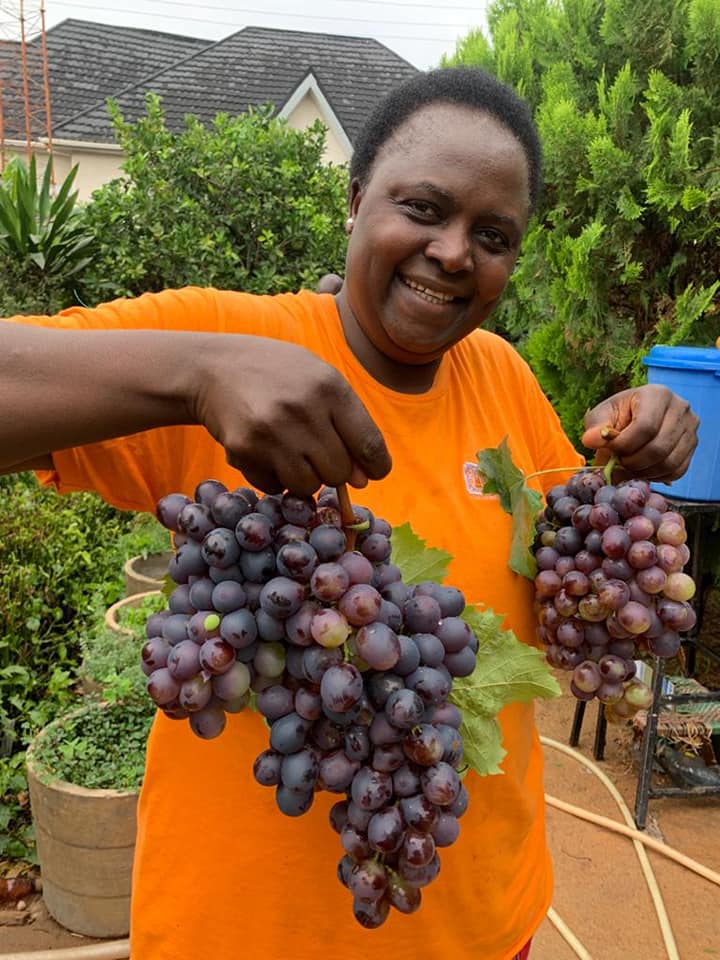
Picture Credit: Dorcas Bello
Canon 924 says: “§1. The most holy Eucharistic sacrifice must be offered with bread and with wine in which a little water must be mixed. §2. The bread must be only wheat and recently made so that there is no danger of spoiling. §3. The wine must be natural from the fruit of the vine and not spoiled”.
Jesus lived in the Middle East with a temperate climate, which favours the growth of certain plants such as vines. Hence, wine, an alcoholic drink made from fermented grapes, is common. As the Church moved from Jerusalem to Rome, the use of wine continued because Europe has a temperate culture conducive to cultivating grapes.
No doubt, if Jesus had lived in Sub-Saharan Africa or a tropical region, he would have used another drink made from plants that grow in tropical regions.
However, that is what it is. Since wine from grapes (fruit of the vine) is now an indispensable matter for the Eucharist, the universality of the Church constrains us to use it. Currently, all the altar wines used in Nigeria are imported from Europe or South Africa (which also has a temperate climate), even if the bottle labels bear local names. Is it right that an essential element for the Mass depends exclusively on imports? Absolutely NO.
First, importation kills the local economy. Second, imports put pressure on the local currency. The naira depreciates rapidly against the dollar, partly because the demand for dollars for importation, foreign investment, tourism, and education far outweighs the amount of dollars Nigeria makes from exports. Third, wars, scarcity of dollars, and political vendettas can disrupt the supply chain of altar wine into Nigeria and, therefore, threaten the valid celebration of the Mass.
Fourth, since altar wines are imported, they are rationed. As is done (pre-covid) in many western countries where the congregation drinks the blood of Jesus from a chalice, about a bottle is used every Sunday. Can poor parishes in Nigeria afford that? Is poverty part of why we argue that it is only the priest and, at marriages, only the couple should receive the blood of Jesus? Is hygiene our reason for not doing so or do we claim that the body of Jesus is for everybody but the blood is exclusively for clerics? Finally, one wonders if we cannot worship God without foreign support.
Although Nigeria is in the tropics, research and evidence show that grapes can grow in Nigeria, especially in the Middle Belt [1]. It is left for us to delve into this as congregations, dioceses, and even as an Episcopal Conference. Apart from the current, but temporary, insecurity challenges, if one argues that it is not feasible, respond: ‘How many Masses do we say daily in Nigeria? Any investment will be recovered because the market is anxiously waiting’. A diocese or congregation that does this will increase its contribution to the national resource pool. If done by the Episcopal Conference, the profit will be used for its overhead costs.
The same applies to altar bread made from flour, which itself is made from wheat. As Nigeria largely imports wheat, the war in Ukraine and the naira depreciation have skyrocketed the price of wheat and flour. The cost of altar bread has increased and we have a huge number that receives communion daily. Anything to keep the cost of administering the sacraments low should be explored.
Of course, the Catholic Bishops Conference of Nigeria must get involved to ensure quality test and corporate acceptance of a locally produced altar wine. The Dicastery for Divine Worship and the Discipline of the Sacraments in its 2017 circular letter wrote: “It is for the Bishop as principal dispenser of the mysteries of God, moderator, promoter and guardian of the liturgical life in the Church entrusted to his care (Cf. CIC can. 835 § 1), to watch over the quality of the bread and wine to be used at the Eucharist and also those who prepare these materials”. The letter also noted that “an Episcopal Conference could mandate one or more Religious Congregations or another body capable of carrying out the necessary checks on production, conservation and sale of the Eucharistic bread and wine in a given country and for other countries to which they are exported”. [2]
Inculturation is not only about religious beliefs and rituals; it also includes making the faith to affect all dimensions of our society.
May God continue to help us🙏🏾
K’ọdị🙋🏾♂️
[1] Grape-vine into the tropical and sub-tropical zones, grape cultivation in Nigeria, available at URL: https://uaekadoh.wordpress.com/2016/09/19/grape-vine-into-the-tropical-and-sub-tropical-zones-grape-cultivation-in-nigeria/ ; ‘Money on the ground’: the story of a grape grower in Nigeria, available at URL: https://www.thecitizen.co.tz/tanzania/news/business/-money-on-the-ground-the-story-of-a-grape-grower-in-nigeria-3589966
[2] Congregation for Divine Worship and the Discipline of the Sacraments, Circular letter to Bishops on the bread and wine for the Eucharist, available at https://www.vatican.va/roman_curia/congregations/ccdds/documents/rc_con_ccdds_doc_20170615_lettera-su-pane-vino-eucaristia_en.html
